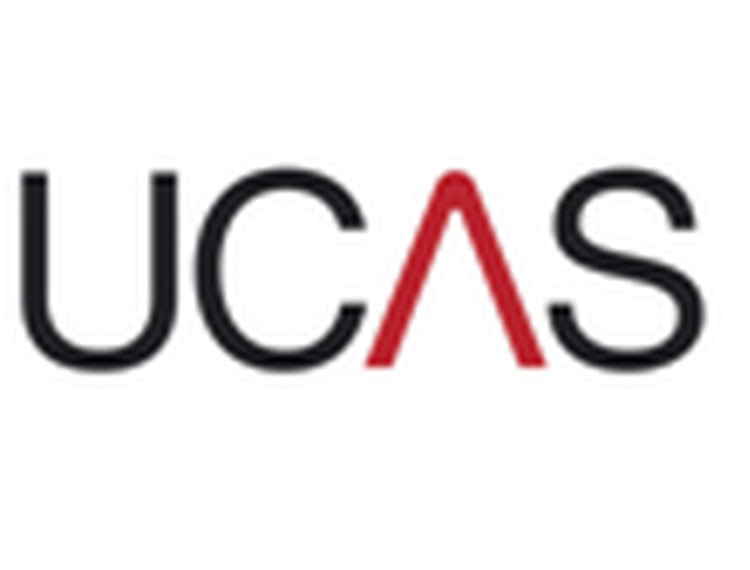UCAS forecasts conditional unconditional offers will ‘significantly decline’ in 2020

Offers which guarantee applicants higher education places if they make the offer their first (firm) choice are set to decline, according to a UCAS forecast.
Clare Marchant, UCAS’ Chief Executive, said:
‘The university and college-level data we are releasing today from 2019 provides a more detailed look at the increase in the number of conditional unconditional offers. However, early indications point very strongly to a behaviour change in 2020. We forecast as many as 75% of universities and colleges which made conditional unconditional offers in the 2019 cycle will no longer make these in 2020.
‘Whilst we predict a fall in these types of offers, we will likely see universities and colleges deploy other offer-making strategies, including direct unconditionals, in this competitive market.
‘We are basing our forecast on conditional unconditional offers on three factors. Some universities and colleges have publicly said they no longer plan to make such offers, and this is repeated in statements included in our university and college-level data released today. Secondly, we monitor offer-making through the year and our early modelling shows the tide is turning. Finally, our analysis of applicant decisions in the 2019 cycle shows they were only marginally more likely to choose a conditional unconditional offer as their firm choice.
‘We make this forecast because there is a lot of public debate on these types of offers, based on our data and insights. We will be able to share our analysis of changes in offer-making trends at the end of the 2020 cycle, when we have the full picture.’
Education Secretary Gavin Williamson said:
“Under no circumstances are ‘conditional unconditional’ offers justified and I will write to all universities continuing them asking them to end this practice.
“We know students who accept unconditional offers are more likely to miss their predicted A levels. I welcome those institutions leading the way in committing to end these offers, but there is clearly more to do.
“We are now at a pivotal moment on admissions with two major sector reviews ongoing – and it is in students’ best interests that we get these right.”
OfS welcomes projected cut in ‘strings attached’ unconditional offers
The Office for Students (OfS), the independent higher education regulator in England, has welcomed an early forecast from UCAS which projects a fall in offers to university which only become unconditional once a student has accepted it as their firm choice.
Commenting, Nicola Dandridge, chief executive of the Office for Students, said:
“This is an encouraging early projection from UCAS, although of course we will have to wait until the summer to have the full picture of how universities have made their offers. While we accept that unconditional offers may have their place in the admissions system, the OfS has raised repeated concerns about the use of so-called ‘conditional’ unconditional offers. These offers actually come with strings attached, and risk placing undue pressure on students. Any such pressure is both unacceptable and unfair. Universities’ admissions policies should always be designed with the student, and not the institution, in mind.
“We will shortly be launching a review of England’s admissions system, working with partners from across education to ensure that we have a system of admissions which is fair, easy to understand, and allows students to demonstrate their achievement and potential. This review will build further evidence about unconditional offers and their impact in the context of the entire admissions system.”
UCAS’ End of Cycle 2019 report also includes new information about equality in higher education. Commenting, Chris Millward, director for fair access and participation at the Office for Students, said:
“This report gives a number of important indications that the persistent gaps in higher education entry rates between the most and least advantaged students is closing. There is encouraging data, for example that more students in receipt of free school meals are attending those universities requiring the highest entry grades.
“Despite record rates of young people from disadvantaged backgrounds entering higher education, there is still more to do to ensure that they gain access to the right course for them and reap the rewards this can bring. That’s why we’ve ensured universities and colleges have committed to ambitious targets to close gaps in access and outcomes in the next five years. If universities meet their targets, 6,500 extra students from disadvantaged backgrounds will enrol on courses with the highest entry requirements every year from 2025. This will change thousands of individual lives for the better, and we all benefit from a society where everyone has the opportunity to make the most of their ability and potential.”
Today (30 Jan), UCAS is releasing more insight and analysis in its End of Cycle Report 2019, which includes:
- two chapters on ‘Unconditional offer-making by provider group’ and ‘Equality in England’.
- university and college-level data about final application and acceptance figures for the 2019 cycle, including analysis by country, sex, background, and unconditional offer-making, with recent years for comparison. Whilst UCAS does not comment on individual organisations, its data enables the sector and beyond to contextualise trends
Scotland
In Scotland, there is a substantial section of higher education that is not included in UCAS’ figures. This is mostly full-time higher education, provided in further education colleges, which represents around one third of young, full-time undergraduate study in Scotland – this proportion varies by geography and background within Scotland. Accordingly, figures on applications, and application rates in Scotland, reflect only those applying for full-time undergraduate study through UCAS.
Definitions
- Conditional unconditional offer – offers which are conditional at the point of offer, and adjusted by the provider from conditional to unconditional if selected as an applicant’s firm choice. These are identified in the admissions system through free text fields that providers can use to communicate any additional information to applicants.
- Direct unconditional offer – offers which are unconditional at the point of offer.
- Other unconditional offer – offers which are conditional at the point of offer and become unconditional before 30 June – the final date on which main scheme applications can be submitted, but which cannot be identified as conditional unconditional.
The total of these types of offers are referred to as offers with an unconditional component.











Responses